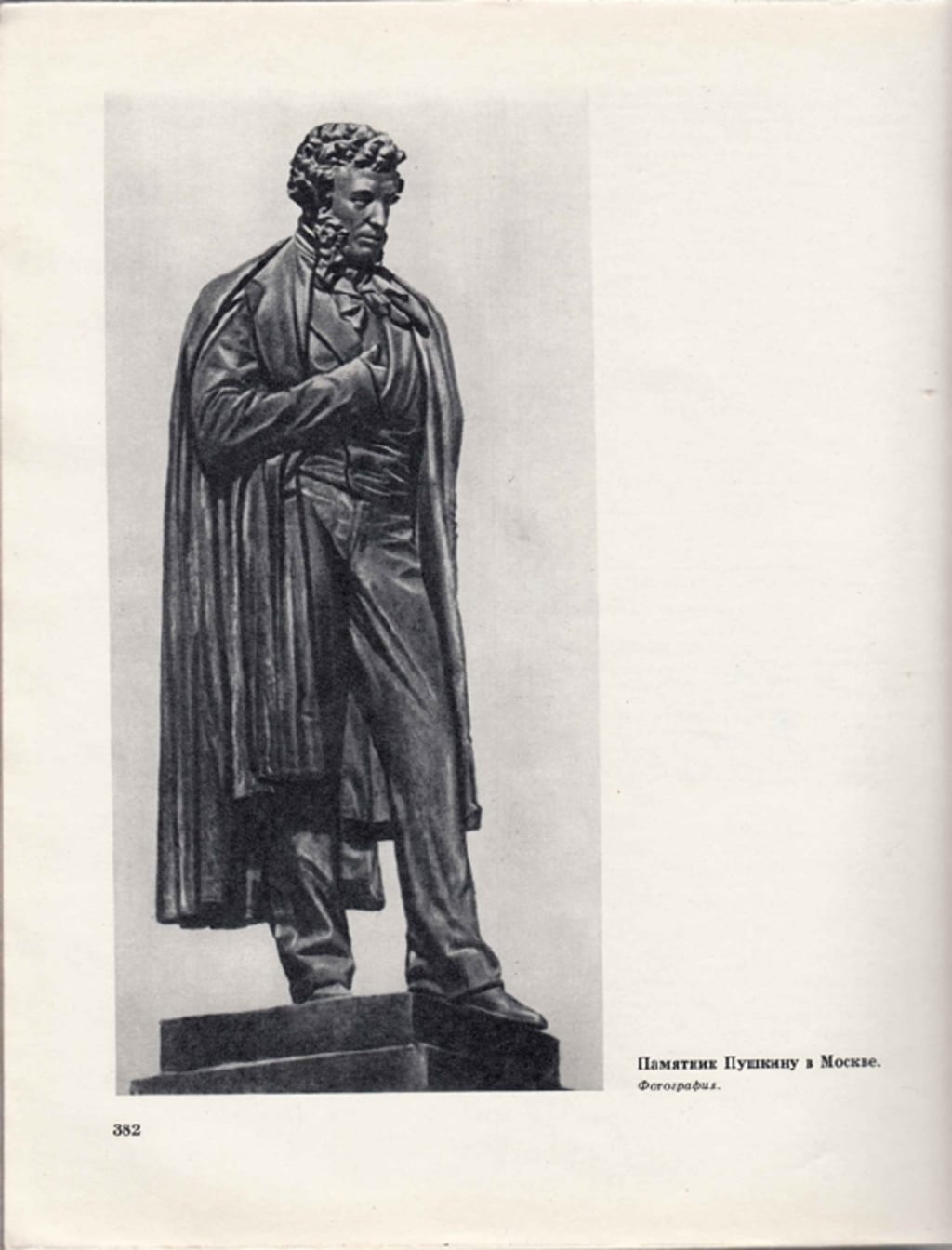Dostoevsky: Pushkin predicted the fate of Russia
Russia

The mass meeting on June 8 began with some presentations and a poem by Alexei Pleseyev, an old friend of Dostoevsky's from the Petrashevsky group, entitled "In Memory of Pushkin". Then it was Dostoevsky's turn to speak, and he took the podium to "hijack the Pushkin commemoration". Although there are many accounts of this event - which became an epochal event not only in Dostoevsky's life, but in the cultural life of Russia in the late nineteenth century - no one has written as directly as he himself did on the night of his stunning victory. wrote that night takes us directly to the central scene of the events as he did. "No, Anya, no," he wrote, "you cannot even conceive or imagine the effect it had! What is the success I achieved in Petersburg! Nothing, compared to this one it is nothing. When I came out, the hall erupted in thunderous applause, so loud that I could not speak. I waved my hand for permission to start - but it didn't work: the people were ecstatic and enthusiastic (all because of "The Brothers Karamazov"). I finally started: I was interrupted by thunderous applause at the end of every page of my speech, and sometimes even at every sentence. My voice was loud and full of passion."
Pushkin's poem, the spirit of Russia
We get an onlooker's perspective from Gleb Uspensky. He noted at the beginning of the gathering that Dostoevsky sat "quietly" behind the podium as if hidden away, "casually writing something in his notebook."
When it was his turn to appear, he walked quietly to the podium and in less than five minutes the feelings, thoughts and hearts of all the participants in the rally, without exception, were all under his control. He addressed them in plain language, exactly as if he were talking to an acquaintance, neither in a high-sounding manner nor in a lofty and impassioned manner. He told them simply and clearly what he thought of Pushkin, without any digressions or unnecessary embellishments: Pushkin was a man who expressed the aspirations, expectations and hopes of everyone - of those who were listening to him in this hall at this moment. of the man. He thought it perfectly possible to bring Pushkin into this hall, so to speak, and to use Pushkin's words to explain to the people gathered here what is related to their present anxiety, their present suffering. No one had done this before Dostoevsky, and this is the main reason why his speech was particularly successful.
How was Dostoevsky able to accomplish this amazing feat? Just as Turgenev drew on his two speeches on Pushkin delivered as early as the 1960s, Dostoevsky relied on his own lifelong observation of Pushkin, an observation that is evident everywhere in his work from the very beginning and continues all the way to The Writer's Diary. We can find all his main observations about Pushkin in his previous works, and the relevant scholarly studies refer to them with rigor. The commentary on the speech in Dostoevsky's Complete Works gives an exhaustive account of this, and more importantly, using his excellent critical method, he combines and unifies these views into a whole, enthusiastically praising Pushkin's poetic prophecy of the glorious mission that history requires Russia to accomplish for humanity - something he had never done before. had never done before. Dostoevsky usually interpreted literary works not in terms of the author's personality as expressed in everyday life or in terms of the specific historical and socio-cultural issues that might have attracted his/her attention, but always in terms of larger issues. Thus, his literary criticism becomes an example of what Nietzsche called the "monumental" style of historical writing, through which the subject of the work becomes a symbolic expression of some larger theme - whether psychological or abstract moral or religious. The subject of the work becomes the symbolic expression of a more significant theme - whether psychological or abstract moral or religious. This time, he makes Pushkin a symbol of his own Russian messianic sentiments and his notion of the supremacy of "the people," which at this moment is perfectly in tune with the sentiments of the vast majority of his audience, whereas in the past this would not have been the case.
He began with a quote from Gogol in 1835: "Pushkin was an extraordinary phenomenon, who perhaps uniquely expressed the Russian spirit." By quoting this, he dismisses at once Turgenev's claim that the cynical Gogol has replaced Pushkin's artistic status. For Dostoevsky, Pushkin is not only an "extraordinary phenomenon" but, above all, his "prophetic significance"; it is the essence of this prophecy that Dostoevsky intends to elucidate.
The unfortunate wanderer and the man rooted in the earth
He divides Pushkin's work into three stages, but he emphasizes that it is impossible to draw a clear line of time, because, as a living organic whole, Pushkin's work cannot be divided into several completely separate parts.
He takes as an example Pushkin's early work "Tzigane," in which a Russian nobleman named Aleko leaves civilization to join her wandering tribe in order to live with his Tzigane lover, in this long poem. Dostoevsky believed that this episode had come to symbolize the basic Russian predicament, a predicament that gave rise to a new type of character. "In Aleko Pushkin has found and brilliantly reproduced that unfortunate wanderer who wandered around in his native country, that historically characteristic suffering Russian who, by this historical necessity, appeared among us after our cultured society had disengaged itself from the population. This is a perfectly created real character, a type of character that has long been deeply rooted in our Russian landscape."
Dostoevsky then briefly reviews the historical roots of this character type, which emerged "just as Peter the Great's reforms were entering their second century"; it was at this time that educated Russians became "a social class [completely] separated from the people and from the power of the people from the people and from popular power". Of course, the vast majority of Russians did not have this conscious tendency to transcend the population, but "it was enough for it to appear in a 'tiny elite' ...... because they were enough to make the vast majority of the rest lose inner peace." Aleko was looking for something, but he didn't actually know what he was looking for. Instead of returning to their roots, later generations of Russians sought this lost truth in the "fixed historical process and the carefully established civil society order" of Europe. However, this search was self-defeating, because the "wanderer" had to find the truth "first in his own heart"; but how could he understand this necessity when he became a stranger in his own homeland: he "is only a little grass that undulates with the wind, and the wind can break its stems and leaves and even uproot it. He too could feel this situation and suffer greatly from it." Hearing these words, one is reminded of the alienation that Dostoevsky himself felt in the hard labor camps: he found himself such a "stranger in a foreign land" among the peasant prisoners, who were mercilessly hostile to him and those like him only because they were educated members of the upper class. . "Given the chance," he wrote to his brother, "they [the peasant prisoners] would eat us alive."
If "Tzigane" "already strongly suggests ...... this solution," Dostoevsky finds it expressed more clearly in "Evgeny Onegin. The protagonist of this long narrative poem is again a "wanderer who wanders painfully around his homeland and the world", a stranger in another country wherever he goes. "He really loves his homeland, but he has no faith in it, and he "sadly mocks" those who have faith in it. Onegin killed Lensky "only because of his melancholy", which "may have been caused by his pursuit of some universal ideal". Dostoevsky contrasts Onegin with Tatyana, whom he sees as the embodiment of the Russian ideal, and therefore regrets that the poet did not use her name as the title of this long poem; after all, she is the positive figure among the main characters of the work. "One might even say that in our literature, with the exception perhaps of the character of Lisa in Turgenev's Noble House, the positive image of so beautiful a Russian woman hardly ever reappears." This unexpected compliment to Turgenev was greatly appreciated by Turgenev; he was sitting right on the stage, so everyone could see that, after hearing Dostoevsky's praise, he sent a flying kiss in Dostoevsky's direction.
In contrasting Onegin with Tatyana, Dostoevsky treats Tatyana as a "person firmly anchored in her homeland" and as the embodiment of Russian folk values (even though, like Onegin, she is not a member of the "people"). Onegin's refusal to accept her love at the beginning of this poetic novel is interpreted as an example of his contempt for the treasures found in his homeland. Although Dostoevsky admits that "he treated her courteously ......, Onegin's contemptuous attitude made him completely ignore Tatyana when he first met her in the provincial backwoods, a simple, innocent girl who was very shy before him and had a humble and submissive image ". He could not appreciate her good moral qualities, because "he was an impractical man, he was an agitated idealist, and remained so all his life". No doubt in response to Turgenev's recourse to Hugo and Mérimée, Dostoevsky mockingly imagines that if Childe Harold "or even Lord Byron himself" had come over from England to point out "the charm of her shyness and humility- -Oops, Onegin would immediately be stunned, because in these people, who are suffering so much on earth, there is often a mental slavery!" Onegin did not know Tatyana, but she visited him at his place - the stanzas describing this scene are very famous ("they are incomparably beautiful and profound", said Dostoevsky), and after looking through the books and After looking through the books and ornaments he brought back from abroad, she finally realized his essential inner emptiness: "Wasn't he a poor imitation?"
It is not until later, after Tatyana "marries a respectable, elderly general - whom she cannot love because she loves Onegin" - that Onegin meets again the queen of Petersburg society, Tatyana. When Onegin meets again Tatyana, who becomes the queen of Petersburg society, he is suddenly overwhelmed by her charms. However, despite his falling under her spell, she flatly rejects him: "But I am already married to another man / to whom I will be faithful for the rest of my life." Dostoevsky praises this decision as making Tatyana "holy"; here she says this deliberately as a "Russian woman" and as a symbol of Russian morality - at least Dostoevsky says -At least that is how Dostoevsky understood it. Moreover, as all listeners know, he is here also taking issue with a famous comment by Belinsky. Under the influence of French idealistic socialism and George Sand, this critic refused to recognize any high moral significance in Tatyana's actions. She had agreed to "marry" at her mother's request rather than out of her own choice; therefore, Belinsky considered her fidelity to a marriage that was not based on love immoral and not at all praiseworthy. It was in the recently published volume of The Brothers Karamazov, influenced by Belinsky, that Kolya Krassotkin parroted this disparaging commentary about Tatyana in order to show off his youthful knowledge.






Comments
There are no comments for this story
Be the first to respond and start the conversation.